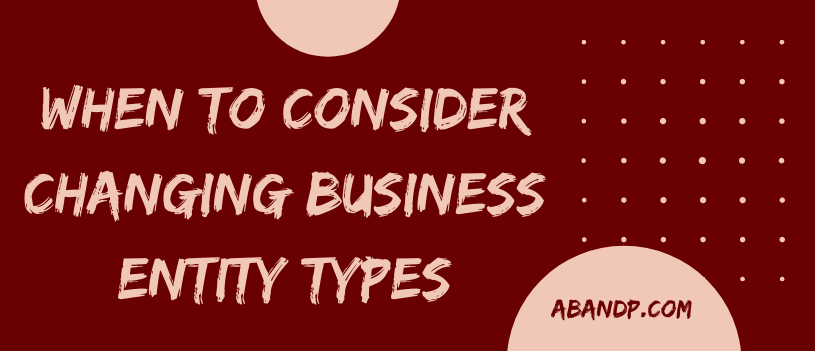Are you operating your business as a sole proprietorship and thinking of forming an entity? Or do you have a structure in place but are considering another as your business evolves and grows?
Today I’m sharing scenarios from Nellie Akalp, the CEO and founder of Corpnet to help you know if it’s time to consider a change to your business type.
The first reason to consider forming an entity is if you are expanding your business by adding services or hiring employees. Proprietorships and partnerships do not have a legal separation between owners and their businesses, so your personal assets are at risk if your company is sued. If you are not comfortable with the lack of liability protection, and LLX might be a great first step to give you peace of mind.
A second reason to consider changing your business structure is to have the most optimal tax situation. Sole proprietors and partners must pay self-employment tax on their earnings which can be quite hefty. An S Corporation allows you to be paid wages that are subject to Social Security and Medicare, but the company pays half of the liability, rather than you being responsible for the full amount through self-employment taxes.
A third scenario to consider a different business type would be if new partners are joining the company. Some entity types limit the number of owners a business may have and restricts who may own it. If you are adding co-owners to your business, you’ll need an entity type that allows the flexibility you need.
Another consideration when bringing on new partners is the personal liability. In a general partnership, owners are responsible for the own actions and those of their partners.
A fourth reason to review the correct entity type is if you are planning to expand into other states beside your current home location. If this is the case, you may need to form a domestic business entity in the new state or “foreign qualify” there.
You are considered doing business in another state when any of the following area occurring:
- The business has a physical presence (office space, warehouse or retail store) in the state,
- You are conducting in-person meetings with customers in the state
- You have employees living or working in the state.
A fifth reason to consider changing your entity type is if you are ready to sell your business or retire. The business of a sole proprietor or partnership ends when owners retire or pass away. If the company is a legal business entity, you have the option of selling or transferring ownership. If business perpetuity is important to you, review which entity type is the best fit for your situation.
Remember that forming an entity (or changing types) will affect financial and legal aspects of your business and there will be additional compliance requirements as well. Be sure to talk to a business attorney and your CPA to understand the implications that entity formation will have on your company.
If you need a referral to a business attorney or CPA, or you have additional questions, feel free to reach out to us at 310-534-5577 or [email protected]. We’ll be happy to give you the resources you need to help you make the decision to find which entity type is right for you.
